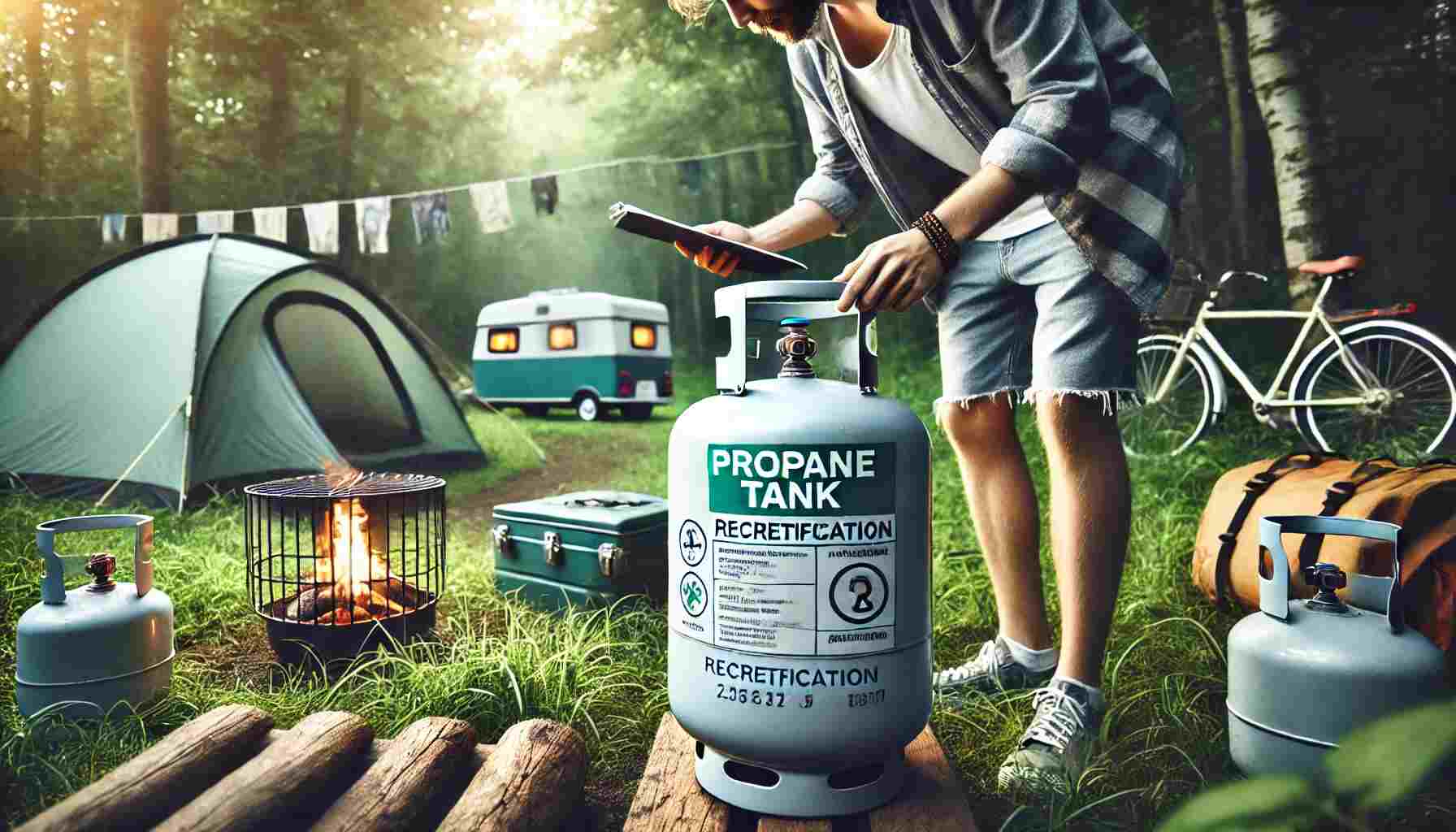Propane tanks are a staple for many outdoor enthusiasts, from camping trips to backyard barbecues. However, a common question arises: do propane tanks expire? This comprehensive guide will address this question in detail, providing accurate and relevant information to ensure safe and effective use of propane tanks.
Understanding Propane Tank Expiration
What is the Lifespan of a Propane Tank?
In the United States, propane tanks are typically certified for a period of 12 years from the date of manufacture. This certification ensures that the tank meets safety standards and can safely store propane. After this initial 12-year period, the tank must be requalified to continue being used.
Do Propane Tanks Actually Expire?
Propane tanks don’t “expire” in the traditional sense of the word. Instead, they must be inspected and recertified to ensure they are still safe to use. The term “expiration” refers to the end of the tank’s initial certification period.
How to Find the Manufacture Date
The manufacture date of a propane tank is usually stamped on the collar or handle of the tank. This date is typically written in a “Month-Year” format. For example, a tank manufactured in July 2022 would have the date “07-22” stamped on it.
Recertification of Propane Tanks
What is Recertification?
Recertification is the process of inspecting a propane tank to ensure it still meets safety standards after its initial 12-year certification period. If the tank passes inspection, it is requalified for another five years.
How Often Do Tanks Need Recertification?
After the initial 12-year period, a propane tank needs to be recertified every five years. The tank can continue to be recertified every five years as long as it passes the inspection.
How is Recertification Done?
Recertification involves several steps:
- Visual Inspection: A qualified technician checks the tank for any signs of damage, such as dents, rust, or cracks.
- Leak Test: The tank is tested for leaks to ensure it can safely hold propane.
- Valve Inspection: The valve is checked for proper operation.
- Requalification Marking: If the tank passes all inspections, it is stamped with a new requalification date.
Where to Get a Propane Tank Recertified
Propane tanks can be recertified at many locations, including propane refill stations, hardware stores, and specialized propane dealers. Companies like Ferrellgas and Blue Rhino offer recertification services, often as part of their tank exchange programs.
Safe Usage Practices
Storing Propane Tanks
Propane tanks should always be stored outdoors in a well-ventilated area, away from direct sunlight and sources of heat. Storing tanks in a shed or garage can be dangerous due to the potential buildup of gas in an enclosed space.
Handling and Transporting Propane Tanks
When handling or transporting propane tanks, follow these safety tips:
- Always transport tanks in an upright position.
- Secure tanks in place to prevent them from tipping over.
- Avoid transporting tanks inside a vehicle’s passenger compartment.
Inspecting for Damage
Regularly inspect your propane tanks for signs of damage or wear. Look for:
- Dents, bulges, or cracks in the tank body.
- Rust or corrosion, especially around the valve area.
- Any unusual smells, which could indicate a gas leak.
Recognizing Signs of Expired or Damaged Tanks
An expired or damaged propane tank can pose serious safety risks. Be aware of these signs:
- Difficulty in connecting or disconnecting the tank from appliances.
- Hissing sounds or the smell of gas, indicating a possible leak.
- Visible damage, such as dents or corrosion.
Actions to Take with Expired or Damaged Tanks
If you suspect your propane tank is expired or damaged, do not attempt to use it. Instead, take the tank to a certified professional for inspection or exchange it for a new one. Many propane dealers offer exchange programs where you can trade in your old tank for a recertified one.
Environmental and Legal Considerations
Proper Disposal of Propane Tanks
Expired or damaged propane tanks should be disposed of properly to prevent environmental harm. Many municipalities have specific guidelines for propane tank disposal. Check with your local waste management facility for instructions on how to safely dispose of your old tanks.
Legal Requirements and Regulations
In the United States, the Department of Transportation (DOT) regulates the transportation and certification of propane tanks. Ensure your tank complies with all relevant regulations to avoid fines or penalties.
Frequently Asked Questions (FAQs)
Do Coleman Propane Tanks Expire?
Coleman propane tanks, like other portable propane tanks, do not have an expiration date printed on them. However, they should be regularly inspected for damage, rust, or leaks. If a tank shows signs of damage or if it’s been stored for a long time, it’s best to replace it.
How Can I Tell If My Propane Tank is Expired?
Check the collar or handle of the tank for a stamped manufacture date in the format “Month-Year.” If it has been more than 12 years since the manufacture date, the tank needs to be recertified.
Can Expired Propane Tanks Be Refurbished?
Yes, expired propane tanks can be recertified if they pass a thorough inspection. If the tank passes, it is stamped with a new requalification date and can be used for another five years.
Where Can I Exchange an Old Propane Tank?
Many hardware stores, propane refill stations, and companies like Blue Rhino and Ferrellgas offer propane tank exchange programs. You can bring your old tank and exchange it for a recertified one.
What Should I Do with a Damaged Propane Tank?
Do not use a damaged propane tank. Take it to a certified professional for inspection. Many propane dealers also offer disposal services for damaged tanks.
Is It Safe to Store Propane Tanks Indoors?
No, propane tanks should not be stored indoors. They should be kept in a well-ventilated outdoor area away from direct sunlight and sources of heat.
Conclusion
Understanding the lifespan and recertification process of propane tanks is crucial for ensuring safety and functionality. By regularly inspecting your tanks, following safe handling practices, and getting them recertified as needed, you can enjoy a reliable source of propane for all your needs.








